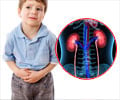While planning for emergencies it is imperative to take into account the increasing numbers of frail elderly people in order that they receive adequate assistance during natural or manmade disasters.
While planning for emergencies, it is imperative to take into account the increasing numbers of frail elderly people so that they receive adequate assistance during natural or manmade disasters.
As the world's population grows and more individuals are living into their 70s, 80s, and 90s, those charged with managing people, resources, and medical care during and after an emergency, whether heat wave, flood, fire, earthquake, or other disaster, will face increasing challenges in addressing the needs of frail elderly people at such times.Susan Smith and colleagues at the University of Tennessee Safety Center in Knoxville, working with Mary Jane Tremethick at Northern Michigan University, expose the factors affecting the frail elderly during and after an emergency and propose strategies to minimize the impact on this vulnerable group of people.
In 2008, the World Health Organization (WHO) stated that it should be a primary goal of emergency management teams to support older people in an emergency, to minimize harm, and to help them maintain the highest possible level of health and functional capacity and to aid them in recovering from a disaster as quickly as possible.
Smith and her colleagues suggest that, in the light of the WHO's statement, rapid response to a crisis must extend beyond the traditional emergency response personnel. In short "age-responsive" actions must be identified and integrated into risk assessments and disaster response plans. They cite recent examples of heat waves in France, Greece, and the USA, and the US 2005 hurricane season, where such an approach may have reduced considerably the number of deaths among the elderly.
The first point that they address is how to define someone as frail elderly and so more at risk than a healthy younger person. "The term 'frail elderly' refers to adults over the age of 60 suffering from the effects of physical, mental, and sensory deterioration due to age and chronic diseases," the team explains. The frail elderly may therefore be severely affected in their ability to recognize and respond to a disaster. The definition must also encompass the fact that many frail elderly people economically poor or socially isolated and so at even greater risk during and after an emergency situation.
Fundamentally, factors such as declining health and increased chronic diseases, limitations in sight, hearing and mobility, limited access to healthcare resources, low economic status, and restricted social networks, all shift the risk a person faces in an emergency.
Advertisement
Advertisement
SAV










